Dismantle Protectionism. Attract investors. Create more jobs.

The current 1987 Constitution unfortunately sets so many restrictions on economic activities, setting up protectionist provisions that limit businesses in the Philippines to a minimum of at least 60% ownership by local Filipinos, and a maximum of 40% by foreign investors. For advertising companies, it limits ownership to a minimum of 70% by local Filipinos and at most 30% by foreigners. Media companies must be owned 100% by local Filipinos.
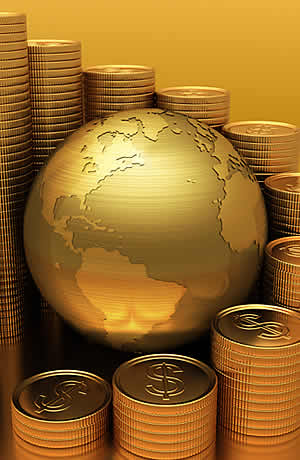 As such, unlike in other countries that do not have such restrictions on foreign investment thus making those countries viable and attractive destinations for Foreign Direct Investment, the Philippines has great difficulty in bringing in foreign investors who often are capable of creating lots of jobs and are often able to provide high quality skills training and provide Filipinos with exposure to higher standards of operation and business systems.
As such, unlike in other countries that do not have such restrictions on foreign investment thus making those countries viable and attractive destinations for Foreign Direct Investment, the Philippines has great difficulty in bringing in foreign investors who often are capable of creating lots of jobs and are often able to provide high quality skills training and provide Filipinos with exposure to higher standards of operation and business systems.
Job creation is thus much faster and on a larger scale in countries that allow easy-entry of Foreign Direct Investment. Since there are not that many local Filipino entrepreneurs creating many jobs coupled with the dearth of foreign investments due to the protectionist economic provisions in the Constitution, unemployment is extremely high in the Philippines, forcing Filipinos to leave their families, loved ones, and children behind while seeking basic employment in other countries.
By removing all economic restrictions and protectionist provisions in the 1987 Constitution, it will become much easier for the Philippines to be able to more readily attract foreign investors and multinational companies to invest in the Philippines and help create jobs for locally-based Filipinos. As a result, Filipinos will have less need to pack their bags and leave their families to work as overseas workers in faraway lands.
Read this article to learn more about it.
[yd_list_posts spec_query=’category_name=Economic Liberalization’]
* * *

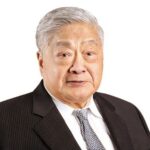



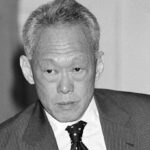
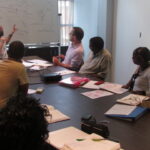



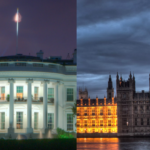

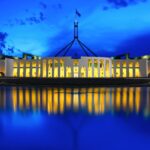

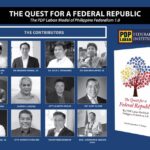

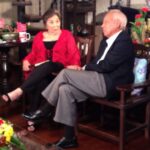
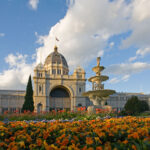


Oliver A. Almero: An inspiration!
Last night, I thought I was dreaming. I was watching Boy Abunda interviewing a very simple man in a very ordinary attire – Mr. Dado Banatao – founder and managing partner of Tallwood Venture Capital, a firm focusing on semiconductors and semiconductor related technologies right in the Silicon Valley. A successful engineer, entrepreneur and a lot more! A man who made nightmares a …dream came true. Others may call it luck but it was after all possible.
Now according to him is payback time. Sharing his fortunes to where he came from by way of trying to help improve the quality conditions of his fellow countrymen thru Phildev which focuses on agriculture, health, information technology, energy, and infrastructure. A noble cause!
Unlike yours truly still lurking on nightmares and catching the seemingly elusive one percent luck with ninety-nine perspiration wishes to volunteer my two cents worth of experience in our country.
A country that have lost the very basic prime mover of her economy, the steel industry! An economy that was started and chosen by the former highly educated entrepreneurs whose only mission then was to realize the fastest and highest return on their investments. Prestigious and profitable investments that is somehow counter-productive up to now. Producing nothing! In vernacular “tubong laway”. Nothing is wrong. Except for the economic problem it has created that resulted to a higher level of unemployment and poverty leading to an anti-social impact like kidnap for ransom, critical peace and order, graft and corruption etc.
They were highly educated. Educated by an educational system given as a right by our government for every Filipino. A right that made it as the common denominator of all Filipinos. A common denominator that was supposed to guide and lead us to where we wanted to be. A system of education whose belief is that the most important resource of our country is its people rather than believing that the Filipinos are the most important managers of resources. And here we are now a benefactor of diaspora philantrophy. A nation without productivity!
Without the basic prime mover which is the steel industry and now the plastic industry as well as the other compounds, hardly seen if not foreign dependent is the eco-sustainability of agriculture, health, information technology, energy and infrastructure.
Further discussed last night was the reason why our economy lagged behind was our inability to reach the global market. Very true but how can we compete in the global market if we do not possess the basic solid and centralized economic and productive infrastructure.
Let’s take the garment industry as an example. Yes we are very good in the software that is garment design but the hardware needed to produce these garments is not available in our country. Importing this hardware will definitely make our produce uncompetitive.
Thus we really need a centralized and subsidized manufacturing infrastructure for basic production of steel, wood, plastic related products etc.
Alden Almero: hey oliver, have you thought about the 60/40 company ownership in our our consitution as one of the possible culprit of the ecomic problem????
Oliver A. Almero: Yes its part and parcel. Did you watch Mr Banatao last night. Ang galing nya!
Alden Almero : nope i havent watch ie. but i read about him a lot..he has been doing that long time ago already.. the thing is what the country really immediately needed is the influx of investment especially foriegn investment. An dthis is being limited …by teh 60/40 restiction in the constitution…Foriegners are not allowed to own 100 % of a company unlike in vietnam ang neighboring countries…resulting in the monopoly bye Cojuangco, Ayalas and other oligarch…See More
Oliver A. Almero: Precisely! The things you mentioned above are not the culprits in our economic problems but they are the results of our inability to solve what really causes them. What I mean is we really have not identified the mother of all problems. Thiis mother problem creates or causes a lot of results that appear and blinds us as problems like the ones you mentioned. Since time immemorial, they tried to solve them but to no avail. We sink deeper. They cannot be solved because they are not problems but rather results. Who needs foreign investors if we have our own productivity? The superpowers in economy used to monopolize the world market. China developed her own if not copied the technology. Now the scale balance tip over in favor of China. According to Mr. Banatao, we have sunk for 50 years and if we try to recover them may take us 100 years
Alden Almero : who needs foriegn investments? ha ha ha …. china needs it vietnam needs and so does america and all countires in the world…productivity or sipag is one thing but investment is another thing… we have to compete in both areas to be able to survive as as a nation..only communist countries like north korea and cuba are .. para mo naring sinabi na wag ng mag OFW ang mga Pinoy because we have enough money to fuel our economy…
Alden Almero: china did develop theirs, but have been to shanghai, and wat i saw are big companies like intel , microsoft GE , it was nt their own money who fueled their economy…it foriegn investments…and from that foriegn investments they were able to develop their own now… the philippines needs to open more to foreign investments. the 60/40 restrictions is one of those problems..
Alden Almero: well you may be partly correct that the 60/40 restriction is a result. it is a result of the cory consitution. it is what the oligarch families where cory aquino belongs wants… they want to control more the philippines…as these oligarch gets richer everyday, the filipino people gets poorer and poorer…
Oliver A. Almero: Who needs foreign investments? Those who are capable of handling foreign investments. We cannot compare the Phils. with China, Vietnam, America etc. The Phils is different. Ang dami ng foreign investors dito. America, China, Korea, Japan et…c. Mga investors sa China ngayon ay nag-invest na dati pa sa atin. Nauna pa tayo nag-implement ng foreign investments. Intel was here long before China open its doors to foreign investments. Nakapagtrabaho pa ako sa Intel and other semicon companies. Pero ano nangyari. Umunlad ba Phils.? Ang daling sabihin na foreign investments ang nag-fuel ng economy ng China. May sarili na silang economy ever since. Mas nauna pa sila sa America. Maybe the Chinese will not accept that FI’s fueled their economy. Daming umalis na foreign investors ditto sa phils. at lumipat sa iba na may infrastucture to handle foreign investments. Now as a foreign investor, why will you invest in a particular country you choose?
Oliver A. Almero: Ang daling sabihin na gamitin natin ang pera ng investors para umunlad tayo. Sino ba nag-isip nyan? LoL’s ! E ano naman ang sabi ng Foreign investors? Bakit sila mag-iinvest sa ibang lugar?
Oliver A. Almero: Mas ok pa sabihin na China needed foreign investments not to fuel their economy but rather to enhance their existing lagging economy. Sabi nga ng Chinese learn more from the experience of others.
Oliver A. Almero: Our need for foreign investments is different from the need of other countries. It’s like that we are not yet ready for globalization.
Alden Almero: Wow so you work in Intel too I was there 1995 to 2001 … and I was actually one of teh trainors of soem intel engineers during the start up there and thats teh reason why I was sent to shanghai…So I know for a fact that China economy was… never like that before they open their economy by joining the world trade. China has their own economy that ever since that’s true and so does all countries. But the question is what kind of economy do they have before they opened up to the influx of foriegn investments???And what kind of economy do they have after that. Same thing with vietnam
Alden Almero: precisely there is a question why those forign investors left the philippines and went to china and vietnam.ii know for a fact that number one reason why intel closed down its plant in the philippines is the higher cost of electricity so they opened another plant in vietnam..
Oliver a. Almero: See, that’s another infrastructure we need. Sa dami ng engineers natin walang maka-engineer ng power plant. Mga engineer ba o taga maintain lang ng power plant na nain-engineer ng tunay na engineer.
Alden Almero: and look from the place that i am now, there is too much debate here now on how the get back the jobs that went to china..
Oliver A. Almero: Ganun din ang gagawin sa Phils. if ever.
Alden Almero: napakadlopi ring sabihin na we develop technologies… did nt we have technolgies before. we taught thailand how to plant rice. and look now…..everytime i go to big supermarkets here i dont see phil rice all i see is thailand rice
Oliver A. Almero: Ganun din China. Sa USA at sa iba pa sila nag-aral kaya puro made in china lahat.
Alden Almero: and what will we do with technolgies that we developed if we dont have money for mass production…and sell that developed technolgies… we all know na magagaling talaga ang mga pinoy. there no question about that.. but do we have te mone to finance the development of technology???
Oliver A. Almero: late 70’s. Yan magandang example yang semicon. Teka may bayad na dapat ‘to o kaya pa burger ka naman. Joke lang! Tagal na ng semicon saten pero ano nangyari? Wala. Sabi mo nga China bago lang sa semicon. Ano nangyari? Semicon ngayon puro made in China rin pero mas nauna pa tayo. D ba? Bakit sila nakadevelop e tayo hindi? Kasi may sarili na silang infrastructure for productivity. Tapos natuto pa sa Intel. Kaya nakapag produce sila ng sarili nila. Lets take Banatao as another example. Kung dito nagtrabaho si Banatao sa Pinas hindi nya kaya gawin ang nagawa nya sa america. Nasa kanya man ang design e hindi nya kayang i-produce for lack of basic infrastructure support. Ang puede nya lang magawa kung nandito sya e ibenta design nya. Another is our garment industry. Ang gagaling sa design ng garments. Pero para i-produce dito ay mahal. Kasi lahat ng gagamitin nya e imported.See More
Oliver A. Almero: Am in the same boat as the garment industry. We have the design. We were able to produce them locally pero imported lahat materyales. Lahat ng alam mo na kaya mong gawin para maging competitive sa market ay ginawa ko na. Ang problema para umunlad ay kailangan mo pasukin ang global market. Kaya lang uncompetitive ang price sa market kasi lahat ng hardware input ay imported.
Oliver A. Almero: Magaling nga ang Pinoy medio mayabang lang agad. Ang sarap ng discussion natin. Sabi nga, matutong mamaluktot habang mai-ikli ang kumot. Wala tayong puhunan. Mariang palad muna kung walang pambili ng karne. Ang secret ng Japan, China, Korea… etc. is patriotism. Buy and use your own produce. Palpak sa umpisa pero madevelop unti-unti at maka-ipon ka puhunan kasi hindi mo nilabas ang dollars mo. Then siguro puede na foreign investments. Kaya lang ano ba ang nasa isip ng foreign investors para mag-invest sa gusto nyang bansa?
Alden Almero: exactly you need money to bu raw materials. that is why ou need foriegn investors…and the foriegn investors are hesitant to come to the philippines because they are not allowed to own 100 % of the company. and pnoy right now has no visio…n like this. he is a puppet of the oligarch…so he wont chance the constitution. gloria tried to do that but the oliugarch dont want it so they made glorias life like hell. its thsame way with marcos the oligarchs hated him .
Oliver A. Almero: Forget about politics. Jan din nasayang time ko. Answer this questions? 1. Why will investors invest in a particular country? 2. What kind of foreign investments do you need? Naku ang lalim na nito!
Alden Almero: politics is very important, because it sets the priorities and the policies of the country. you can never ever talk about the countrys progress without touching the politics. investors do look into what kind of policies does a country hav…e. syempre sigursta rin ang mga yan eh. they invest based on the confidence on how much will there money grow. why would i invest in a country where i dont have much control over my investments and i have to be at the merc of the 60% of filipinos.. who we all know are corrupt?
Oliver A. Almero: alin ang priority natin, politics ba? Or lets think as an individual of what we can do for our country, and not what our politicians can do for us?
Alden Almero: maybe this will help you http://correctphilippines.org/economic_liberalization/
Economic Liberalization
correctphilippines.org
Dismantle Protectionism. Attract investors. Create more jobs. The current 1987 …Constitution unfortunately sets so many restrictions on economic activities, setting up protectionist provisions that limit businesses in the Philippines to a minimum of at least 60% ownership by local Filipinos, and a m…
Oliver A. Almero: Out na ngayon ang foreign investments kasi sa reason mo na total control on your investments which is in conflict with 60/40. Conlict sa control. Parehong magulang. Magulang gait sa kapwa magulang. Paano na ngayon yan?
Alden Almero: as ive said, politics and economy is interelated or interdependent.you just cannot separate one from the other totally.
Oliver A. Almero: Another conflict eh pareho lang pala iniisip. Magpaunlad or magpalago ng pera. 2 na agad ang conflict of interest. Saan patungo ngayon ang foreign investments?
Alden Almero: heres more…http://antipinoy.com/26-years-after-edsa-and-still-wrong-its-the-economy-stupid/
26 years after EDSA and still wrong: It’s the Economy Stupid!
antipinoy.com
Twenty six years of continuous political tumult. From EDSA I to EDSA 3, all thes…e EDSA remixes – and nary an improvement in people’s lives. Twenty six years of continuous probes by the Senate and Congress – and people’s incomes still remain flat …See More
Oliver A. Almero: Saan nag-aral ang mga author ng articles?
Alden Almero: exactly so yan ang nagyayari sa pinas gulangan, nobody wants to take a high road, the pino oligarch wante dto make sure that they have the control of the
Alden Almero: youre so typical, you need to look at the educational background before you open you mind to their ideas.. typical pinoy but anyways.. one author is from ateneo the second author is from UP.
Oliver A. Almero: Kung dumaan din sila sa system of education ng Pilipinas na common denominator ng lahat ng Pinoy eh biktima at produkto rin sila kabilang ako ng maling sistema ng education.
Alden Almero: not necesarilly , they ar enot absed in Pinas so they have thei rmindset is different from typical pinoy.
Oliver A. Almero: Education na binigay ng banyaga na hindi pa nababago hanggang ngayon. Mission pa lang ng Dep Ed ay palpak na. They believe and they succeeded that Pinoys are the most important resource of our country. Cheap quality resources for export. It wud have been better if they will believe that Pinoys are the most important managers of resources.
Alden Almero: see, you just go back to politics, dep ed policies are crafted by the government… so if you have a stupid givernment what do you got???? people can work really hard individually but what is needed actually is a grouo effort.. and PNoy government instead of uniting the country, he keeps on promoting division…by sowing hatred and vengeance..
Oliver A. Almero: Who crafted politics or government? Who crafted our system of education?
Alden Almero: the people themselves and if youtalk about people , they are te politics temselves, but who control their thinking, who is feeding their minds, the media, who owns the media. the oligarchs… so now you just went bact to oligarchs.. and nonoy is an oligarch.
Alden Almero: people deserve the government that elect…
Oliver A. Almero: Where and how did these people learn how to craft politics, government or to be precise the first constitution?
Alden Almero:lets go back to wywMr Banatao, why does peopel doesnt know him? why is it that only you and me are talking about him and his ideas? becuase the media doesn’t promote his ideas.. if he was interviewed doon lang sa tallk show ni boy abunda? w…hy he is not inivited to malcanang and talk to PNoy about is idea? The oligarchs doesnt want him. They will not make money from him. H ei snot a typical PNoy that they can control? its the same reason why corona was ousted. the oligarchs doesnt like him, just like they dont lik egloria… they just made disguised everything about corruption and good governance.
Alden Almero: the first consitution happened loooooooooooong time ago… it has no relevence anymore on how they were crafted… the current situation is more interesting the younger genarations who are teh future of this country…..
Alden Almero: everything in teh Philippines right now must be approved by the oligarch, they have all teh money, so they have the power. try going aginst them and you are dead..
Alden Almero: just like Gloria and Corona..
Alden Almero: For Mr Banataos idea and plans to prosper he needs the belssing of teh oligarch. Sure he is a billionaire here in the US, he has money. but he is only one…all the oligarch in the philiippines can unite against him…
Alden Almero: thats how pathetic the state of the country right now!!! wake up!!! just try to observe what happens after corona..months, years , come to me and tell me in my face that indeed what happen to corona brought some good to the country…
Alden Almero: did it ever occurred to you, that if Noyno really wanted to improved the lives of the people, he shoudl have tied up with peopel like Mr Banatao? instead of wasting time on the impeachment, Noynoy shoudl have directed all his efforts to t…eh idea of Mr Banatao? thus improving teh lives of teh people. But no, the oligarch doesnt want the people to get richer and be independent from them..thereby losing their control on the people..becuase where will that put them??? what will happene to their power, their hold on teh filipino people????
Oliver A. Almero: Sorry I cannot answer for them. Now going back, obviously those people have been taught. First they were invaded. Then they were force to learn a language, so that they can follow the commands of the invaders which is tantamount to slavery…. These people learned and fought back. Slavery became taboo. So they were given education to cool off slavery. They fought back again to regain independence kuno and unknowingly using the system of education given to them crafted democracy. A democracy we now often hear crafted by the system of education given to them. A system of education for the indios to benefit the oligarch. Sad to say that the system of education never changed. Subservient to the giver. Thus we now have what you call politics and government. Unless this system is corrected, we can never have the government you are longing for.